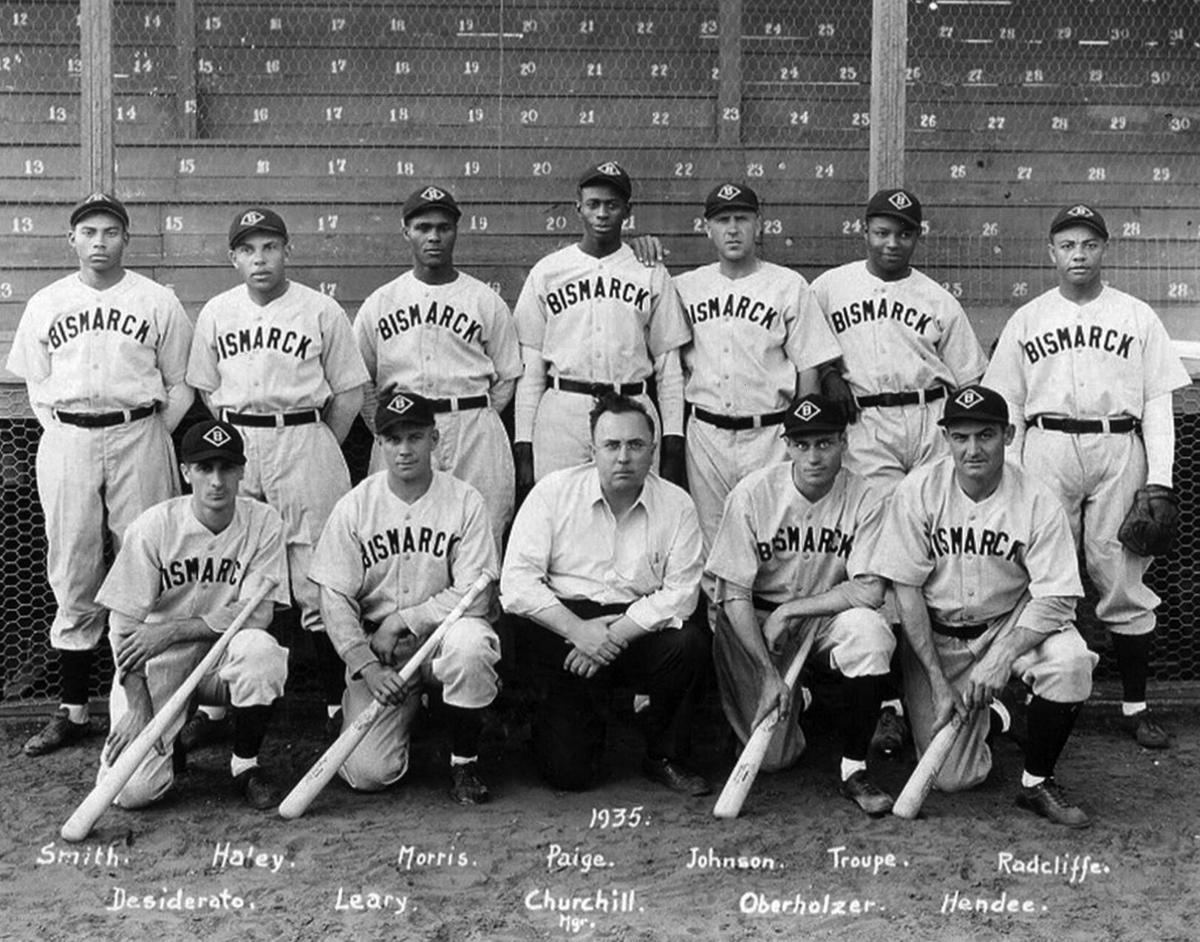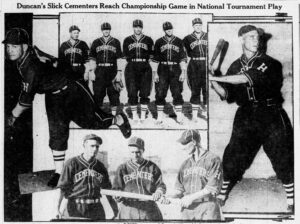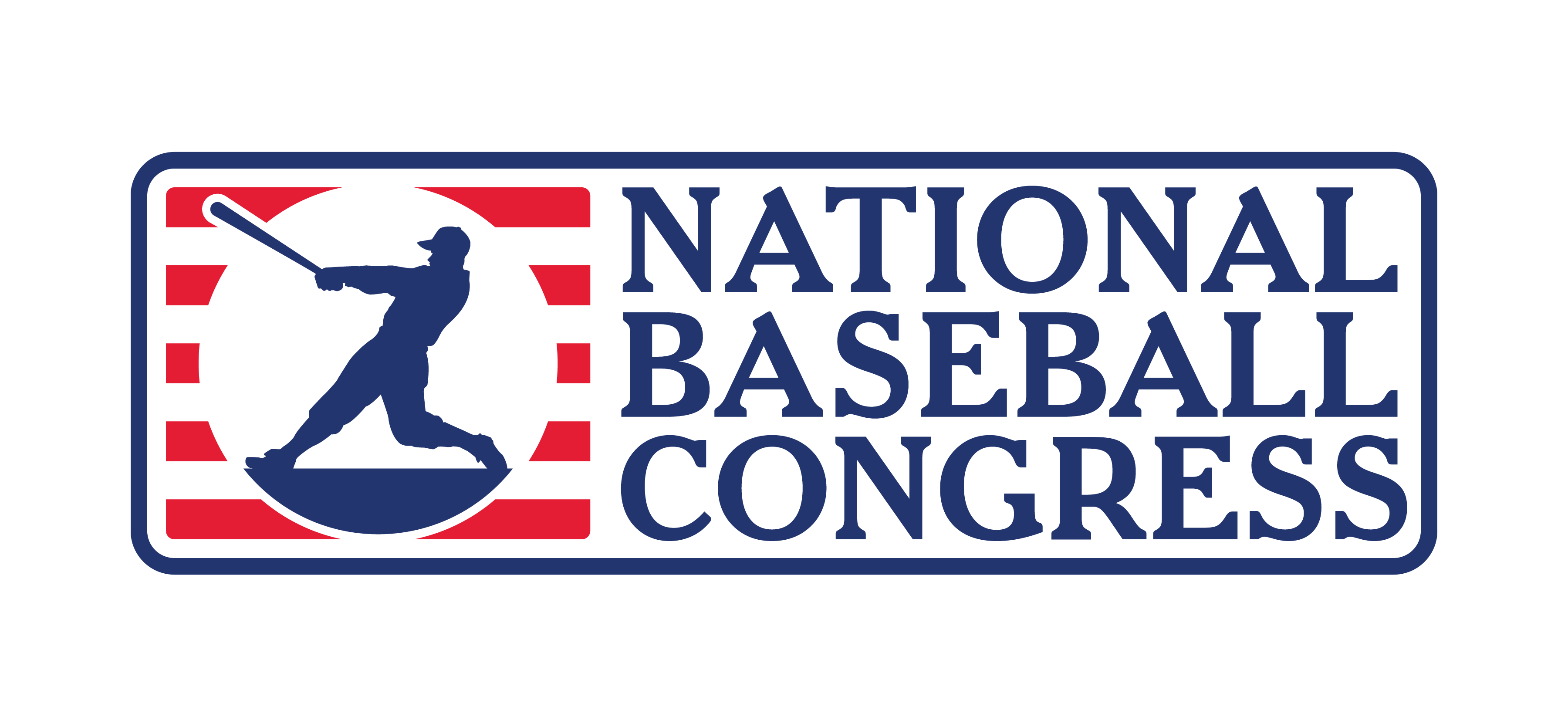Hall of Fame Legends Headline Discovery of 1935 and 1936 NBC Tournament All-American Teams
⋅ History
Satchel Paige and Hilton Smith Among Historic Players Named to Tournament Rosters
In a careful archival project, the complete All-American rosters from the 1935 and 1936 National Baseball Congress tournaments have been recovered and verified. These inaugural years of the NBC tournament showcase some of the most talented baseball players of the era, including two future National Baseball Hall of Famers: Satchel Paige, considered the greatest pitcher of his era who struck out 60 batters and won four games in the first NBC World Series in 1935—a record that still stands today—and Hilton Smith, who played for the Bismarck Churchills in 1935, and starred for them in 1936.
The Birth of a National Institution
The National Baseball Congress World Series was first played in 1935, created by Wichita sporting goods salesman Raymond “Hap” Dumont. After early success with state tournaments, Dumont formulated an idea: if the City of Wichita would build a new stadium, he would host a national semi-pro tournament to draw teams from coast to coast. The result was the inaugural event in August 1935, held at Lawrence Stadium in Wichita, with thirty-two teams invited to compete.
The tournament was an immediate success. Dumont offered Satchel Paige $1,000 to bring his touring team from Bismarck, North Dakota to compete in the first NBC World Series—a significant sum at the time. Dumont did not have the money when he made the offer, but believed he would make it at the gate. Paige’s success proved him right, as won four games, helping the Bismarck Churchills to the championship. Dumont ended up making enough money to pay Paige and all of the bills.
A Progressive Vision for the Sport
From its inception, the NBC tournament featured a focus on diversity, with five teams classified as either Black or “integrated,” one team consisting of Native American players and another of Japanese players. This commitment to bringing together players from all backgrounds made the 1935 tournament particularly significant in baseball history during an era when Major League Baseball remained segregated.
The 1935 Bismarck Churchills became champions of that first tournament, winning with an integrated roster that included Negro League stars alongside white semi-professional players. Though the Churchills attempted to repeat in 1936, they fell short of another title. However, pitcher Hilton Smith’s presence in 1936 helped the team remain competitive. Unlike Paige, who gained widespread fame early, Smith developed his considerable talent over a longer career in the Negro Leagues. Both Paige and Smith are now Baseball Hall of Famers, recognition of their status among baseball’s all-time greats.
The Duncan Cementers (also known at the time as the Duncan Halliburton Cementers and the Duncan Halliburtons), representing Duncan, Oklahoma, emerged as the runner-up to Bismarck in 1935 and returned to contend in 1936. The team’s consistency is reflected in the All-American rosters: first baseman Ed Lowell appeared on both the 1935 and 1936 All-American teams, maintaining elite batting averages of .432 and .486 respectively. Catcher Quincy Troupe also made both rosters, improving his average from .300 in 1935 to .400 in 1936 while shifting to a more prominent role behind the plate. The presence of these repeat selections demonstrates the competitive excellence that the Cementers sustained across the tournament’s first two years.
A Legacy That Endures
As the NBC tournament celebrates its 91st year in 2025 and heads toward its 92nd tournament in 2026, it remains a vital showcase for amateur baseball talent. Thousands of young prospects and ex-major leaguers have played in the tournament over the decades, and it continues to maintain the tradition that Hap Dumont established nine decades ago—bringing together competitive baseball and players eager to prove themselves on a national stage.
The recovery of these complete All-American rosters provides a detailed snapshot of the talent that competed in those pivotal early years of the NBC tournament, preserving the legacy of players and teams from baseball’s semiprofessional golden era.

The 1935 NBC All-American Team
Catchers: Red Murray, Shelby (NC) Cleveland Mills (.400); Alex Coleman, Duncan (OK) Cementers (.379)
Infielders: Ed Lowell, Duncan (OK) Cementers (1B, .432); Joe Niemiec, Omaha (NE) Ford V-8s (2B, .364); Joe Desiderato, Bismarck (ND) Churchills (3B, .360); Joe Hassler, Duncan (OK) Cementers (SS, .459)
Outfielders: George Brown, Duncan (OK) Cementers (.344); Lloyd Little, Shelby (NC) Cleveland Mills (.381); Quincy Troupe, Bismarck (ND) Churchills (.300)
Pitchers: Satchel Paige, Bismarck (ND) Churchills (4-0, 66 K); Chet Brewer, Bismarck (ND) Churchills (2-0, 18 K); Floyd Carlson, Omaha (NE) Ford V-8s (3W); Lefty Denton, Rossville (GA) Peerless Mills (3W); Earl Huckleberry, Shawnee (OK) Athletics (3W); Luther Roy, Shelby (NC) Cleveland Mills (2-1, 12 K)
Utility Players: Dan Oberholzer, Bismarck (ND) Churchills; Mack Arnette, Shelby (NC) Cleveland Mills; Uke Clanton, Shawnee (OK) Athletics
The 1936 NBC All-American Team
Catchers: Quincy Troupe, Bismarck (ND) Churchills (.400); Mack Coppock, Duncan (OK) Cementers (.355)
Infielders: Ed Lowell, Duncan (OK) Cementers (1B, .486); Harold Massmann, Bismarck (ND) Churchills (2B, .500); Claud Herrin, Buford (GA) Bona Allens (3B, .382); Johnny Kerr, Wichita Water (SS, .375)
Outfielders: Joe Gulledge, Duncan (OK) Cementers (LF, .350); Jack Baer, Buford (GA) Bona Allens (CF, .318); Frank Clift, Duncan (OK) Cementers (RF, .375)
Pitchers: Abe White, Buford (GA) Bona Allens (4-0, 32 K); Harry White, Duncan (OK) Cementers (3-0, 15 K); Hilton Smith, Bismarck (ND) Churchills (4-0, 25 K); Lefty Wales, Wichita Water
Utility Player: Dewey Bondurant, Wichita Water (.483)

